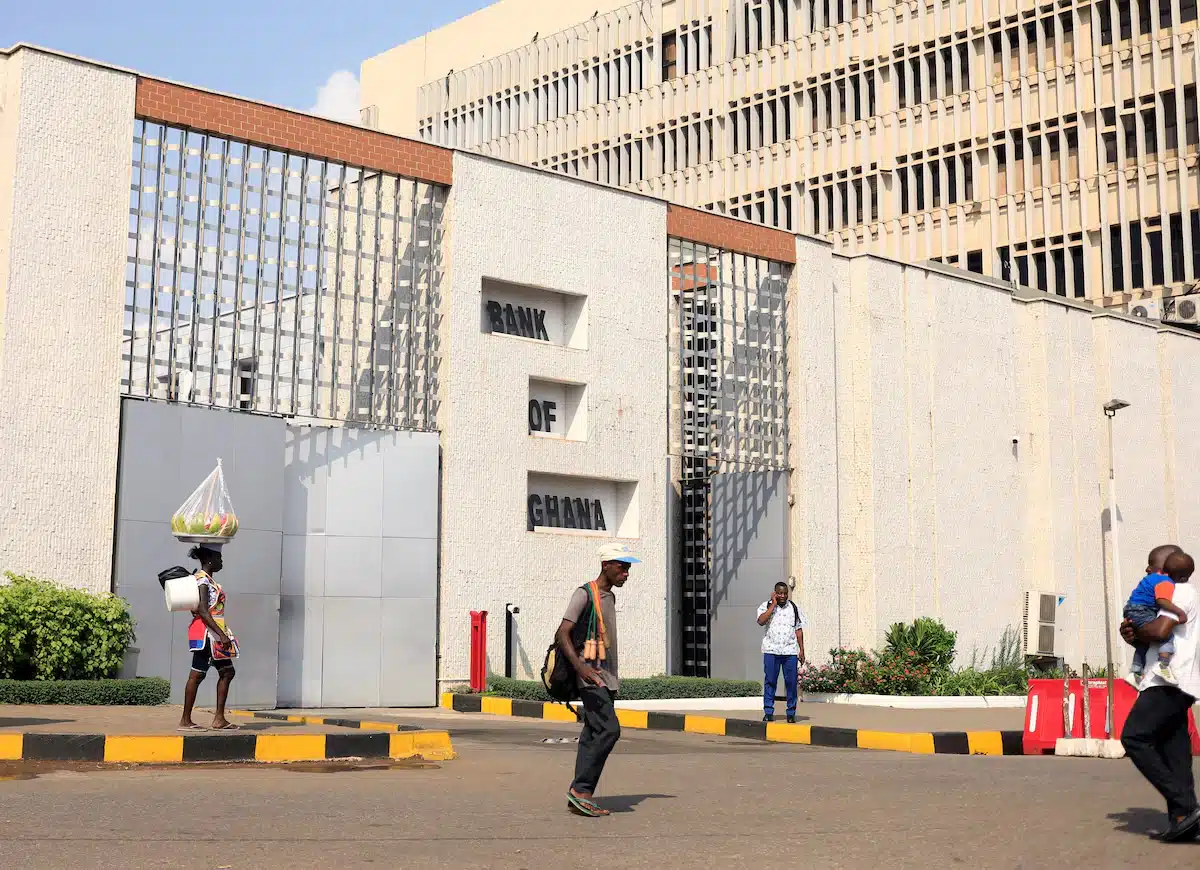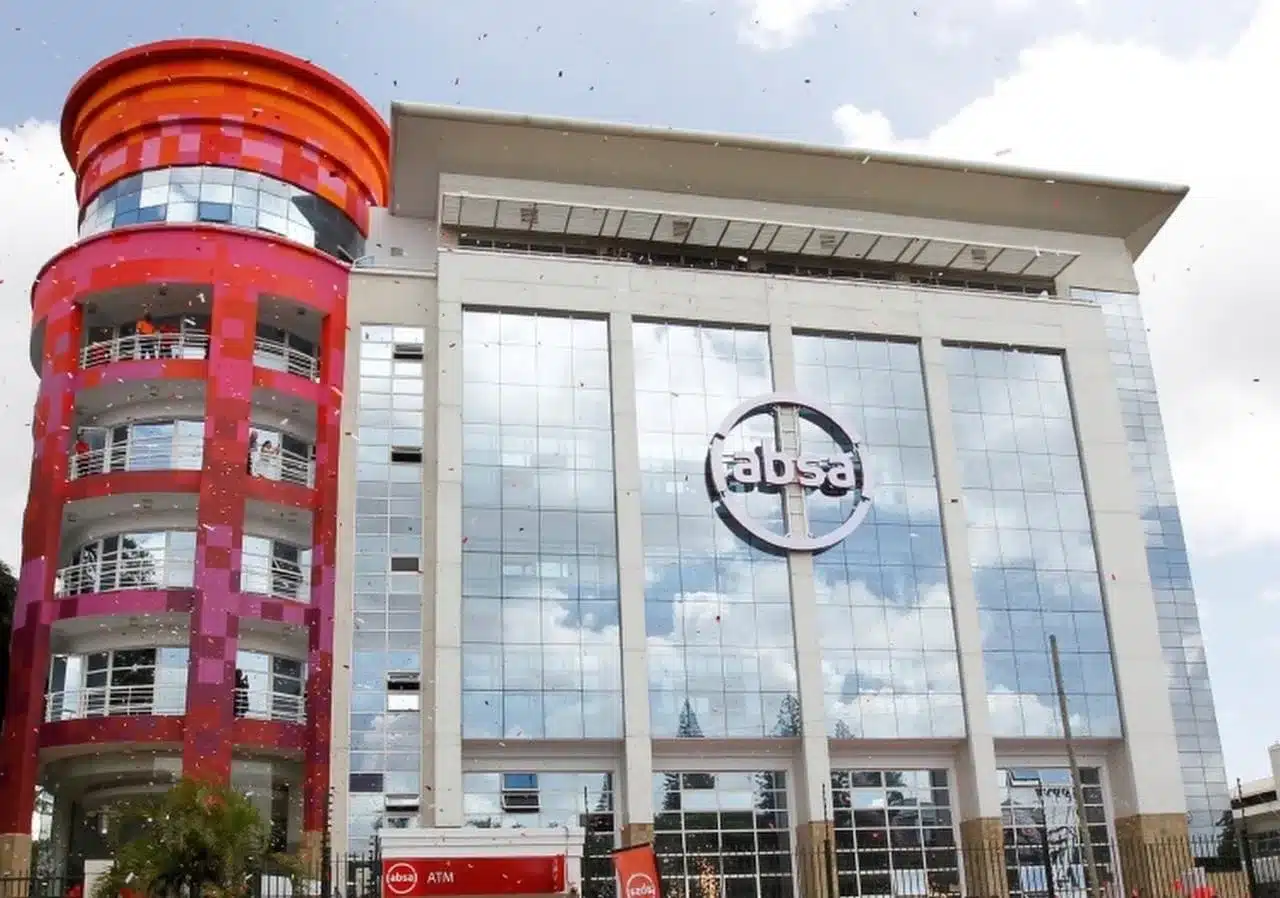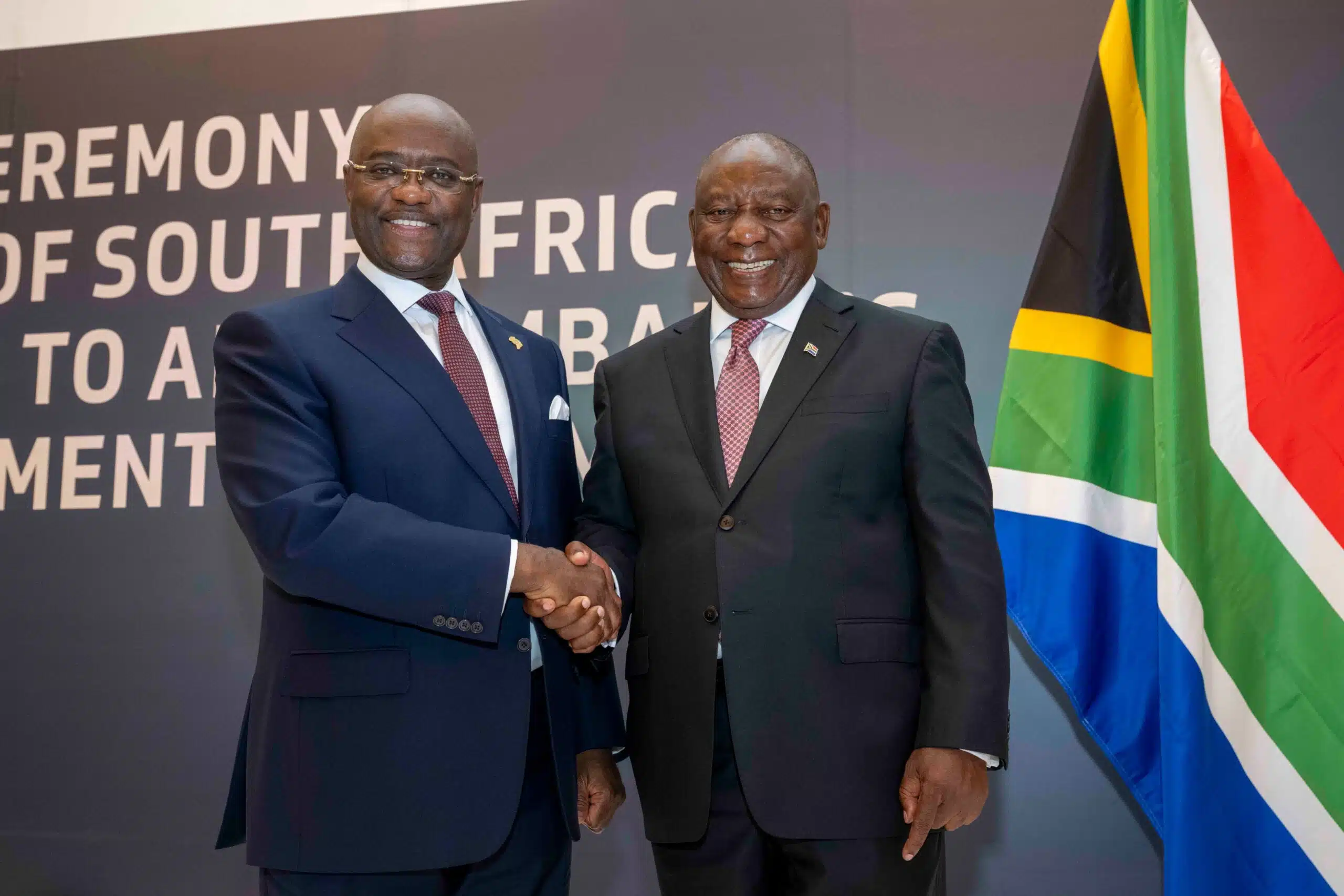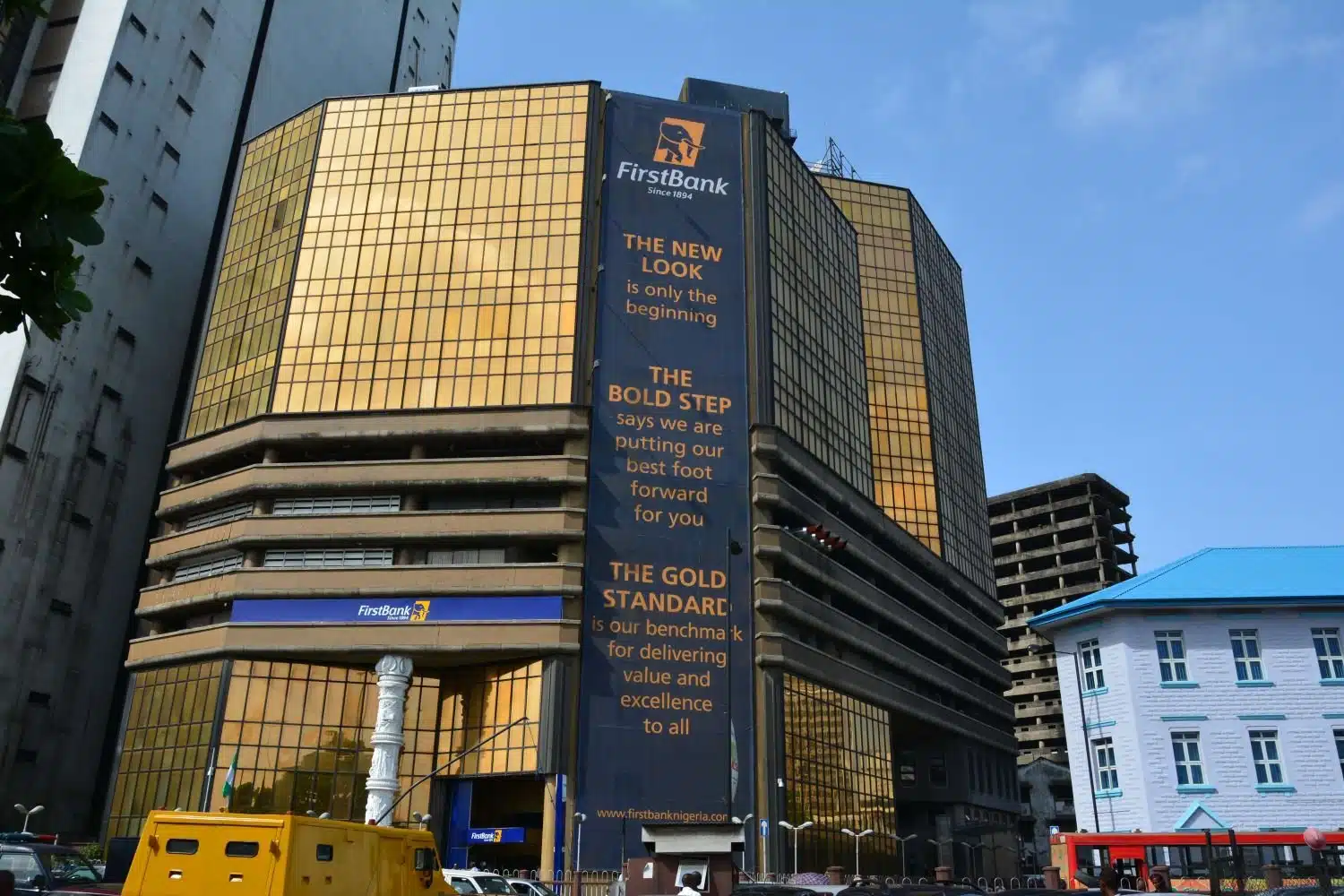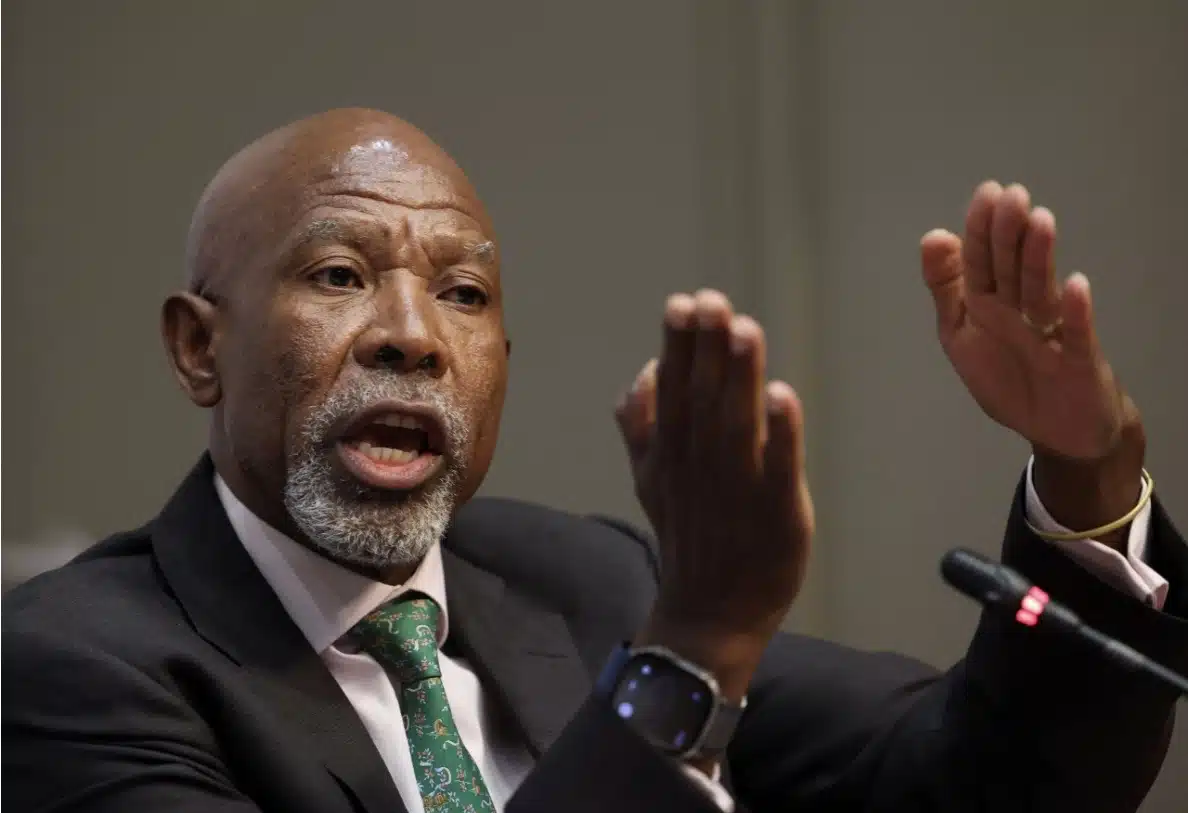Earlier this month, the Bank of Ghana (BoG) urged more banks to list on the Ghana Stock Exchange (GSE) as part of a broader effort to deepen the country’s financial markets and attract long-term investment.
Speaking at the 2025 International Monetary Fund–World Bank Annual Meetings in Washington, DC, Johnson Asiama, BoG Governor, announced that the central bank, in collaboration with industry players, will set up a special committee to encourage more banks to go public.
Asiama described the initiative as a “win-win” that would strengthen Ghana’s equities market, broaden participation, and attract patient capital to fuel economic growth.
Out of Ghana’s 25 universal banks, only 11 are currently listed — a situation that limits access to long-term investment capital. The GSE, which has 36 listed firms in total, remains one of Africa’s smallest stock exchanges, valued at around $13.0 billion as of September 2025.
Investor confidence recovering
The directive comes at a time when investor sentiment in Ghana’s equities market is slowly improving after years of economic uncertainty. The GSE Composite Index (GSE-CI), a market-capitalisation-weighted index of all listed ordinary shares, has risen by more than 318% over the past decade — reflecting gradual market recovery and renewed trading activity.
The Governor emphasised that expanding bank participation would diversify investment options, strengthen liquidity, and make the GSE a more robust platform for mobilising long-term financing.
Analysts hail a ‘bold’ reform
Financial analysts have described the BoG’s move as a “bold” and necessary step toward reshaping how Ghanaian banks raise capital and engage with the public.
“This isn’t just a regulatory directive. It’s a signal that will build stronger governance and accountability, improve capital strength, and allow more Ghanaians to own a stake in the country’s leading banks,” said Samuel Bentum, a Ghana-based Financial Data Analyst, on social media platform X (formerly Twitter).
Bentum added that if well executed, the policy could make Ghana’s banking sector more transparent and investable. “Yes, the transition will come with challenges — from meeting listing requirements to managing shareholder interests — but the long-term impact could be transformative.”
A market with deep roots but shallow participation
The exchange was created in 1990 to help companies raise equity and debt capital, promote transparency, and support national development through private investment.
Over the years, it has expanded its offerings to include the Ghana Alternative Market (GAX) for small and medium-sized enterprises and the Fixed Income Market, which now dominates trading volumes through government securities.
Banks played a crucial role in the GSE’s early growth. In the 1990s and early 2000s, government-led privatisation and recapitalisation programs pushed several state-owned and commercial banks to list publicly. However, in the past decade, newer and mid-tier banks have preferred to raise funds privately rather than through public offerings.
Economic Policy Analyst Ebenezer Ndoor said while the BoG’s latest move may sound like a routine policy announcement, its implications for Ghana’s investment landscape are significant.
“The GSE has long struggled with low liquidity and limited trading volumes. Bringing more banks on board means more shares to trade, more investor participation, and ultimately a more vibrant market,” Ndoor noted.
He added that going public requires stricter disclosure, independent auditing, and accountability to shareholders — measures that could raise governance standards across the country’s banking industry, benefiting depositors, investors, and regulators alike.
Why fewer banks list on the GSE
Despite the benefits, many banks have stayed away from the stock market due to a combination of factors:
- Regulatory and disclosure burdens: Publicly listed banks must comply with extensive reporting requirements, which some mid-tier lenders find costly.
- Alternative funding options: Access to cheaper or private capital from international investors or parent institutions often reduces the need for public listing.
- Limited liquidity: The GSE’s relatively low trading volumes make it harder for investors to enter and exit positions efficiently.
- Control concerns: Some privately held banks prefer maintaining ownership control rather than opening up to public shareholders.
- Market volatility: Currency fluctuations and macroeconomic instability have often discouraged long-term equity commitments. However, after sharp depreciations in 2023 and 2024, the cedi emerged as Africa’s best-performing currency in the first eight months of 2025, gradually restoring investor confidence.
What to expect
For individual investors, the BoG’s plan could open the door to owning shares in Ghana’s most profitable sector — banking. Stocks like Access Bank, Ecobank, and GCB Bank have already helped drive the market’s rebound in recent years.
Still, questions remain about whether local investors are prepared to take advantage of a new wave of listings or whether foreign institutional players will dominate again.
“The real test,” Ndoor, the Policy Analyst, said, “will be whether this initiative translates into a culture of ownership and transparency within the banking industry.”
Whether the policy succeeds in transforming the GSE into a preferred capital-raising hub will depend on how quickly the central bank can balance regulatory incentives with market realities.
But the renewed focus on equity participation signals a long-awaited shift toward openness, inclusion, and resilience in Ghana’s financial landscape.

